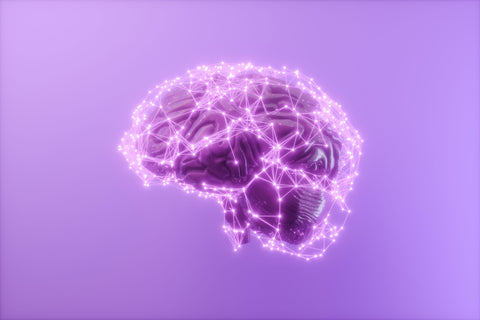Revolutionizing Pharma: The Promise and Challenges of AI-driven Drug discovery
In recent years, Artificial Intelligence (AI) has emerged as a transformative force, reshaping the contours of numerous industries with its unparalleled computational capabilities. AI's influence is pervasive and growing, from streamlining operations in the automotive sector to enhancing user experiences in digital platforms. Among the numerous sectors impacted, drug discovery stands out as a promising and evolving field for AI integration. Coined as 'AI-driven drug discovery,' this intersection of technology and pharmaceutical research is spearheading a new medical science innovation era.
Historically, drug discovery has been a long, intricate, and often unpredictable process. Traditional methods require vast resources in terms of time and financial investments. Enter AI, with its ability to rapidly process and analyze vast datasets, and the dynamics begin to change. It offers the potential to drastically reduce the timeframes traditionally associated with discovering new drugs and can predict how molecules will behave, even before they are synthesized in the lab.
The economic implications of this technological marriage are profound. A mere glance at the market's growth trajectory underscores its significance. From holding a market value of $0.6 billion in 2022, AI-driven drug discovery is on a meteoric rise, with projections estimating its worth to soar to a staggering $6 billion by 2027. This rapid escalation signifies industries' immense trust in AI's capabilities and underscores its vast potential and high expectations.
At its core, AI's role in drug discovery can be elucidated through four primary facets:
Predictive Modeling: AI's prowess in predictive modeling is unparalleled. By harnessing intricate algorithms, it can make educated guesses on how drugs interact with biological systems. Delving deeper, advanced deep learning models today can anticipate the developmental paths of vaccines, map out their growth curves, and estimate the peak timelines. This prediction capacity can immensely shorten the traditionally lengthy timelines associated with drug development.
Drug Repurposing: AI's versatility shines in drug repurposing. Through meticulous simulations, AI can recreate the conditions of multiple diseases, offering insights into potential treatments for untreatable ailments. A notable player in this sector is AtomNet. This platform uses deep learning to predict how small molecules bind to target proteins. Such predictions are instrumental in discovering groundbreaking drug candidates. Further, by creating intricate models of molecular structures, AI can suggest novel molecular combinations worthy of synthesis and testing.
Data Analysis and Extraction: AI is the quintessential tool to sift through vast datasets in an era overwhelmed with data. Whether dissecting genetic information, parsing patient records, or gleaning insights from published research, AI is a magnifying lens, highlighting details often overlooked by the human eye.
Automated Lab Experiments: AI-driven robotic systems can autonomously conduct repetitive experiments, such as doing the same trials to find the right drugs. This AI implementation will allow high efficiency and consistent testing, reducing human errors.
Success stories abound in the integration of AI into the pharmaceutical realm. An exemplary case is a collaboration between the German biotechnology giant Evotec and Exscientia, a UK-based AI specialist in drug design, in April 2023. Together, they unveiled a groundbreaking anticancer molecule. Remarkably, AI compressed its developmental timeline from the conventional 4-5 years to a swift eight months. Exscientia's Centaur Chemist, an AI-driven system, analyzed millions of potential drug configurations, meticulously highlighting the most promising for laboratory testing. Following this monumental achievement, Exscientia secured a substantial $525 million in funding.
However, every technological advancement brings its set of challenges, and AI in drug discovery is no exception:
Data Integrity: At the heart of AI's functionality lies data. However, even minor discrepancies in data can lead to significant errors in outputs. Ensuring consistency and quality of data remains paramount.
Interpretability: With AI models becoming increasingly complex, understanding the logic behind their decisions becomes challenging. In a field as critical as drug development, mere recommendations without clear rationale can be concerning.
Generalization: Another challenge is model generalizability. An AI model perfected on one dataset might underperform or even fail with another.
Real-world applications have highlighted these challenges. IBM's Watson for Oncology, designed to aid oncologists by offering treatment recommendations, has faced scrutiny. Despite its promise, the system sometimes showed unsafe or irrelevant treatment recommendations, indicating the pitfalls of an over-reliance on AI.
Despite these challenges, optimism is rife. External investments in AI-centric drug discovery have seen consistent growth, with a twofold increase observed annually over the past five years. Such trends indicate the widespread recognition of AI's potential in drug discovery. Major pharmaceutical players like Pfizer, Novartis, and AstraZeneca are increasingly collaborating with AI-focused startups and research institutions, driving a wave of innovation. AI-powered drugs, like Exscientia's treatments for obsessive-compulsive disorder and certain cancers, have not only been conceptualized but have reached the critical phase of clinical trials.
In conclusion, AI's foray into drug discovery signifies a monumental shift in the pharmaceutical industry. As with all transformative technologies, while AI offers unparalleled advantages in terms of speed, efficiency, and innovation, it also poses challenges that need meticulous attention. With continued collaboration, investment, and refinement, harmonizing AI with drug discovery can pave the way for a new era of medical breakthroughs.


